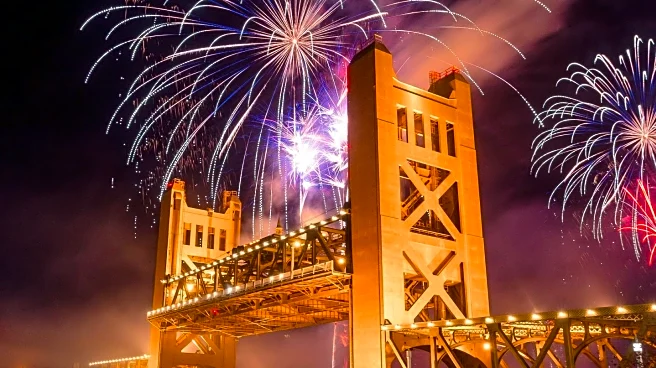What's Happening?
The Aftershock Festival, a major music event, faced logistical challenges as attendees had to rely on rideshare services to reach the venue due to the absence of on-site parking. The festival, known for attracting large crowds, required attendees to plan alternative transportation methods, including rideshares and public transit. This situation highlights the growing trend of festivals adapting to urban settings where parking is limited, necessitating innovative solutions for attendee access.
Why It's Important?
The reliance on rideshare services for festival access underscores the importance of transportation planning in large-scale events. It reflects broader shifts in urban event management, where organizers must balance accessibility with environmental considerations. The use of rideshares can reduce traffic congestion and carbon emissions, aligning with sustainability goals. However, it also places a burden on local infrastructure and requires coordination with transportation providers to ensure smooth operations.
What's Next?
Event organizers may need to explore partnerships with rideshare companies to offer discounts or dedicated drop-off zones for future festivals. Additionally, improving public transit options and communication with attendees about transportation plans will be crucial. These steps can enhance the overall festival experience and mitigate logistical challenges, ensuring attendees can focus on enjoying the event.
Beyond the Headlines
The shift towards rideshare reliance at festivals may influence broader transportation policies in urban areas. As cities host more large-scale events, there could be increased investment in public transit and infrastructure to support sustainable transportation solutions. This trend may also encourage innovation in event planning, with technology playing a key role in coordinating transportation logistics.









